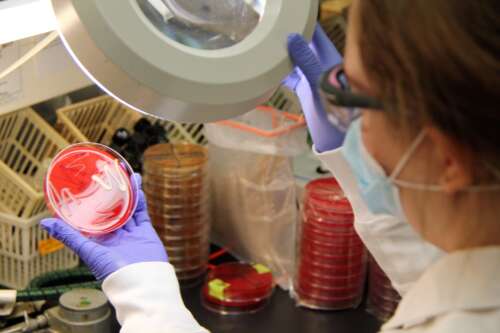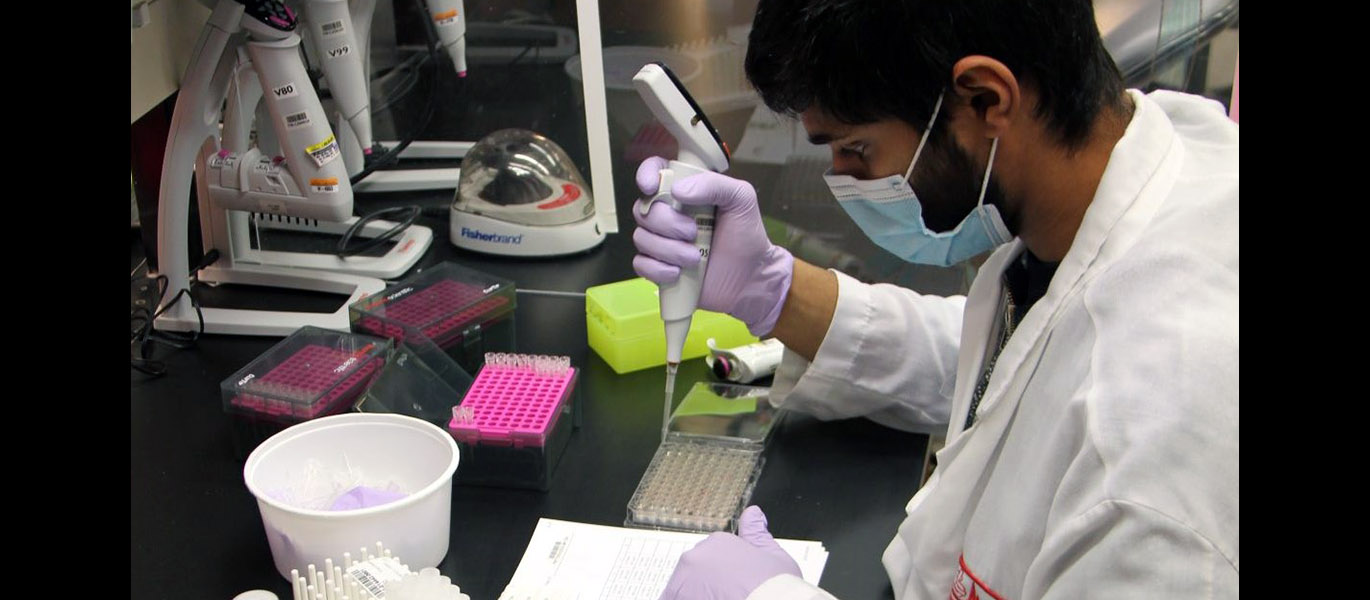The University of Guelph’s Animal Health Lab (AHL) is collaborating with the Canadian Food Inspection Agency (CFIA) in testing and diagnosis of avian influenza in Ontario birds, and is assisting the Ontario Ministry of Agriculture, Food and Rural Affairs (OMAFRA) to help limit further spread.
The AHL is a national leader in disease monitoring and surveillance and continues to work closely with the CFIA and OMAFRA on the diagnosis of avian influenza in Ontario.

“The AHL is well prepared to respond to animal disease outbreaks due to our advanced training, support from OMAFRA for critical supplies and our excellent technical team who work tirelessly to meet the needs of CFIA and the Ontario poultry industry,” said Maria Spinato, AHL director.
With funding from OMAFRA, through the Ontario Agri-Food Innovation Alliance, the AHL uses cutting-edge technologies to test, diagnose and monitor infectious pathogens.
The highly pathogenic H5N1 strain of avian influenza was initially found last year in Europe and has been detected in wild and domestic birds in Newfoundland, Nova Scotia, British Columbia, Quebec, Ontario and 31 U.S. states.
“The AHL has been working with CFIA on the detection and surveillance of avian influenza since January, when the new strain of avian influenza first appeared in Nova Scotia, by providing support for testing,” said Spinato.
“The AHL is also working closely with the OMAFRA to increase surveillance capacity and capabilities in Ontario and limit further spread in the province,” she added.
“To support the provincial increase in monitoring and surveillance, the AHL has ramped up the testing and diagnosis of birds in the lab.”
AHL has also connected with clients in the poultry industry to provide complimentary testing over the next three months to further support the province’s enhanced surveillance strategy.

“This tremendous early warning system underscores the incredible, sometimes intangible, value of the simply outstanding work done at U of G in general, and our Animal Health Lab in particular, to benefit and protect our province,” said Dr. Malcolm Campbell, vice-president (research).
The AHL worked with OMAFRA and CFIA on planning for avian influenza response.
The lab has been involved in the surveillance of several national and global infectious pathogens, including bovine spongiform encephalopathy and African swine fever, working closely with industry and government to prevent their spread.
In 2015, the AHL was instrumental in helping contain an outbreak of H5N2 avian influenza in Ontario, with minimal disruption to the province’s poultry industry.
Beyond providing testing, diagnosis and monitoring in urgent situations, the AHL focuses on developing ways to improve detection and monitoring of infectious pathogens.
